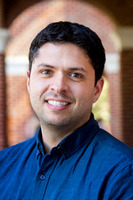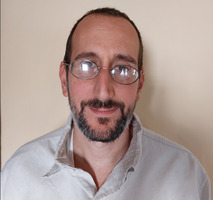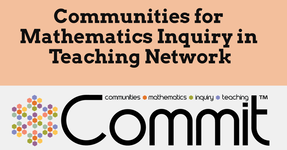
|
The Mathematical Association of America Maryland-District of Columbia-Virginia Section |
- Home
- History
- Main History Page
- Section History Document
- List of Past Officers
- Charter Members
- African-American Participation
- Stories from Section Members
- Section NExT Fellows
- Obituaries
- Smith Award Recipients
- Christensen Award Recipients
- Meritorious Service Award Recipients
- Undergraduate Award Winners
- Meeting Archive
- Past Meetings
- Talk Archive
- Old Section NExT Programs
- Newsletter Archive
- Meeting Minutes Archive
- Miscellaneous Documents
- Meetings
- Minutes
- Fall 2024 Executive
- Fall 2024 Membership
- Spring 2024 Executive
- Spring 2024 Membership
- Fall 2023 Executive
- Fall 2023 Membership
- Spring 2023 Executive
- Spring 2023 Membership
- Fall 2022 Executive
- Fall 2022 Membership
- Spring 2022 Executive
- Spring 2022 Membership
- Fall 2021 Executive
- Fall 2021 Membership
- Spring 2021 Executive
- Spring 2021 Membership
- Fall 2020 Executive
- Fall 2020 Membership
- Fall 2019 Executive
- Fall 2019 Membership
- Spring 2019 Executive
- Spring 2019 Membership
- Fall 2018 Executive
- Fall 2018 Membership
- Spring 2018 Executive
- Spring 2018 Membership
- Fall 2017 Executive
- Fall 2017 Membership
- Spring 2017 Executive
- Spring 2017 Membership
- Minutes Archive
- Newsletters
- Section NExT
- Awards
- Students
- Links
- Search
Fall 2022 Meeting at Shenandoah University
Conference Links
George Kuster (on behalf of MD-DC-VA COMMIT)Christopher Newport UniversityFriday workshop: Intentionally using student thinking to connect teaching and learning Abstract: Traditional teaching methods assume learning is a natural consequence of teaching, and focuses on the teacher as opposed to the student's learning. In this workshop we will discuss how to turn this on its head and place the focus on student learning. By placing the focus of education primarily on student learning we can intentionally engage in teaching practices that better support our students in constructing meaningful understandings of the important mathematical ideas. This shift in focus requires a careful analysis of what exactly we desire our students to understand, how that understanding develops in our students, and how we as teachers can support its development. In particular, we will discuss the principles and practices of Inquiry-oriented Instruction, a student-centered form of instruction that relies almost entirely on student thinking. During the second half of the workshop we will provide instructors with assistance in developing and/or implementing lessons that foster and utilize student thinking to support learning. Biographical Sketch: George Kuster is an Associate Professor in the Department of Mathematics at Christopher Newport University. His research focuses on the teaching and learning of mathematics. Some past projects include how students use variational reasoning in differential equations, characterizing Inquiry-oriented Instruction, and helping teachers implement student centered teaching methods. About MD-DC-VA COMMIT:

David TaylorRoanoke CollegeBanquet Address: Mathematics + Magic = Mathemagic Abstract: What do you get when you combine some mathematical principles from the undergraduate mathematics curriculum with a deck of cards? Fun is what some people say. Amazement is what others might exclaim. But what you do get is a “real world” example of how some principles that all of us have learned at one time work. Building on work from Martin Gardner, Fitch Cheney, and Colm Mulcahy, this banquet talk show with highlight concepts from calculus, discrete mathematics, and abstract algebra to bring magic tricks alive that you can perform yourself in the future! And it may feature some magic tricks that are entirely non-mathematical in nature and left for you to figure out what the BLEEP happened. With any luck, the talk show will end with one of the world's largest games of … heads or tails. Biographical Sketch:
Dr. David Taylor is currently Associate Dean for Academic Affairs and Administration and Professor of Mathematics at Roanoke College in southwest Virginia where he has worked since 2007. His original mathematical interests were in the area of representation theory, specifically of infinite dimensional Lie algebras. Today, his interests are in probability and statistics, especially as they apply to board games and casino games. He is the author of Games, Gambling, and Probability: An Introduction to Mathematics, now in its second edition, as well as a co-editor of Living Proof: Stories of Resilience Along the Mathematical Journey published by the MAA and AMS.

Brian HeinoldMount St. Mary's UniversitySaturday Morning Address: Some unusual mathematical images and the math behind them Abstract: When I first learned about fractals in college, I was fascinated by the imagery and set about trying to write programs to generate them. I generated many images that are considerably different from what was already out there. After I got my PhD, I spent some time trying to understand why the images look the way they do. In this talk, we will look at many of the images, talk about how to generate them, and try to understand a little of the mathematics about why they look the way they do. Biographical Sketch: Brian Heinold graduated from Montclair State University in 2001 with a BS in physics. He earned a PhD in mathematics from Lehigh University in 2006 and has been a faculty member at Mount St. Mary's in Emmitsburg, MD since then. There he teaches a variety of math and computer science courses. His research interests include graph theory, mathematical imagery, and writing textbooks. He given a number of talks at the section meetings. He has served as webmaster for the section since 2013 and he also helps write the Math Jeopardy questions. Unlike banquet speaker Dave Taylor, Brian has missed two section meetings since 2006. 
Ray ChengOld Dominion UniversitySaturday Afternoon Address: A fun exercise in probability Abstract: At an MAA Section Meeting some years ago, an interesting problem came up during discussion of one of the contributed papers. This kicked off a flurry of activity, resulting in several dramatically different solutions, involving conditional expectation, Markov chains, Martingales, the Fibonacci sequence, and other ideas. We will work through six of these solutions. The only prerequisites are basic undergraduate probability and a sense of adventure. Biographical Sketch: Ray Cheng is an Associate Professor of Mathematics at Old Dominion University. He earned his Ph.D. at the University of Virginia. His research is in functional analysis, complex analysis and prediction theory. |
Copyright © 2022 - The Mathematical Association of America
Please send comments, suggestions, or corrections for this page to Brian Heinold at heinold@msmary.edu
Last Modified: 11/11/2022 - 11:03am
 The Fall 2022 Meeting of the MD-DC-VA section of the MAA
was held at
The Fall 2022 Meeting of the MD-DC-VA section of the MAA
was held at  The MD-DC-VA COMMIT was formed in early 2016 (the group was originally called the MD-DC-VA IBL Consortium) as a network of college math instructors with a common interest in teaching and learning using inquiry. We recognize that teaching with inquiry can look very different in different contexts, and view our role as supporting instructors in utilizing the version that works for them and their students. Names that have been used for teaching with inquiry include: ambitious teaching, project-based learning, complex instruction, inquiry-oriented learning, discovery learning, inquiry-based learning, and student-centered teaching. We welcome members who are new to teaching with inquiry as well as those who are more experienced. Please join us!
See the
The MD-DC-VA COMMIT was formed in early 2016 (the group was originally called the MD-DC-VA IBL Consortium) as a network of college math instructors with a common interest in teaching and learning using inquiry. We recognize that teaching with inquiry can look very different in different contexts, and view our role as supporting instructors in utilizing the version that works for them and their students. Names that have been used for teaching with inquiry include: ambitious teaching, project-based learning, complex instruction, inquiry-oriented learning, discovery learning, inquiry-based learning, and student-centered teaching. We welcome members who are new to teaching with inquiry as well as those who are more experienced. Please join us!
See the